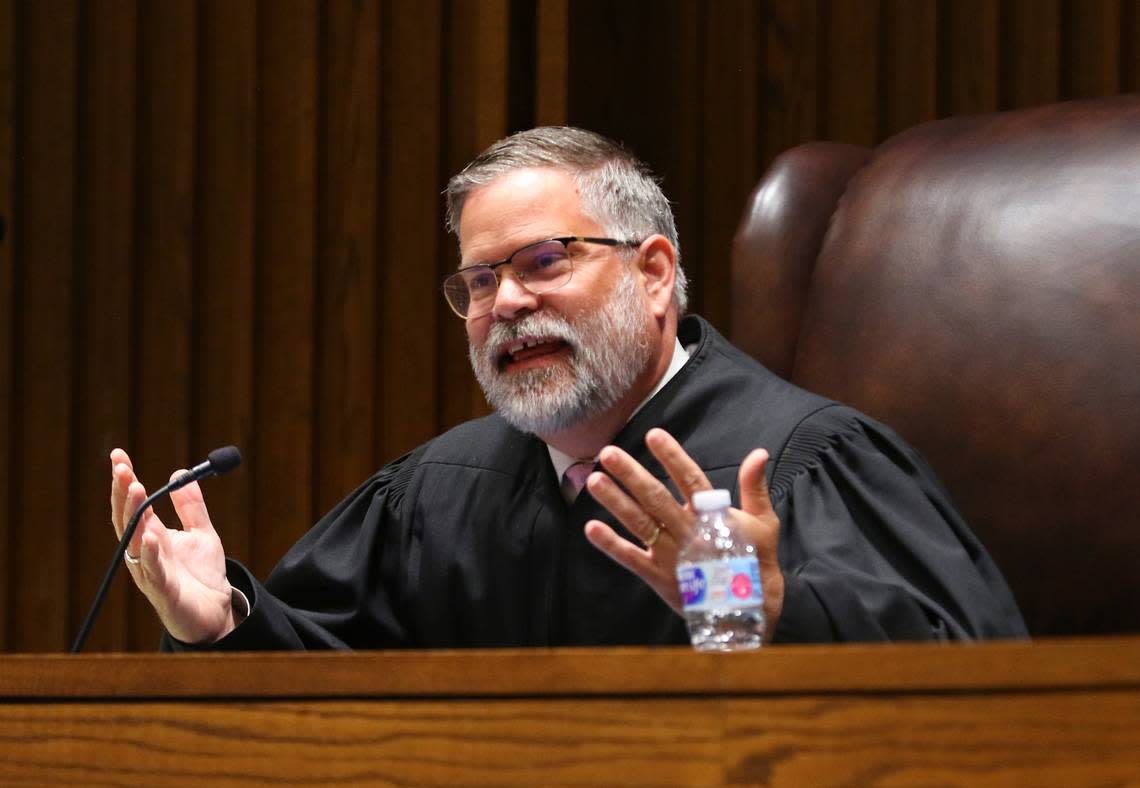Kansas Supreme Court tosses pot conviction, finding sheriff’s deputy violated civil rights

- Oops!Something went wrong.Please try again later.
The Kansas Supreme Court threw out a marijuana conviction on Friday, finding a sheriff’s deputy violated a man’s Fourth Amendment rights when he stopped him in a park.
The state’s high court reversed Tyler Brandon McDonald’s conviction on charges of possessing marijuana and drug paraphernalia following a 2019 encounter with a Geary County Sheriff’s deputy inside a park near Milford Lake northwest of Junction City.
The unanimous decision, authored by Justice Caleb Stegall, found that a warrantless traffic stop for public safety reasons cannot be justified by suspicion of criminal activity.
The opinion comes after The Star last fall documented a series of Fourth Amendment violations by Kansas law enforcement over the past decade, ranging from improper vehicle stops to home searches. The police raid of the Marion County Record newspaper in August has led to new scrutiny of law enforcement actions and whether they respect civil liberties.
“A valid public-safety stop … requires an officer to believe such a stop is necessary to protect the individual or the public based on the specific and articulable facts of the particular situation,” Stegall wrote.
In McDonald’s case, Stegall wrote, the facts didn’t support a valid public safety stop.
On Sept. 16, 2019, Geary County Sheriff’s Deputy James Regalado noticed McDonald’s car parked inside Milford State Park just after 9 p.m. The park was open, but it was dark, and seeing that there appeared to be only one person inside the vehicle, he activated his emergency lights and approached McDonald.
Regaldo smelled pot and eventually searched the vehicle, finding marijuana, drug paraphernalia and a gun. McDonald challenged the search in district court but was convicted. The Kansas Court of Appeals affirmed the decision, noting that the deputy knew the area was a place where individuals had previously gone to harm themselves.
But the Supreme Court was unconvinced. Stegall emphasized that the park was still open and that McDonald was parked legally. He noted that “we assign no value to the bare fact” that McDonald was alone and there were not “specific and articulable facts” regarding concerns of self-harm in the record to support those concerns in this case.
“The deputy had not received any calls, reports, or other information that McDonald was in any type of danger. McDonald did not appear to be in an adverse physical state or doing anything which would indicate he was at any risk of self-harm,” Stegall wrote. “Sitting alone, talking on the phone via Bluetooth, while legally parked in an open public park is simply not enough.”

